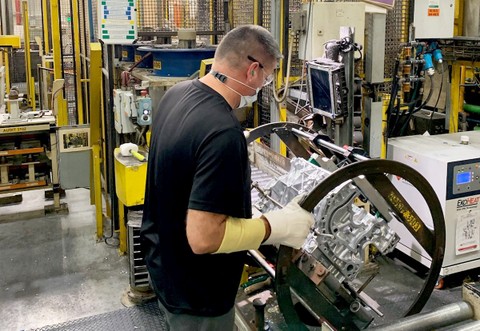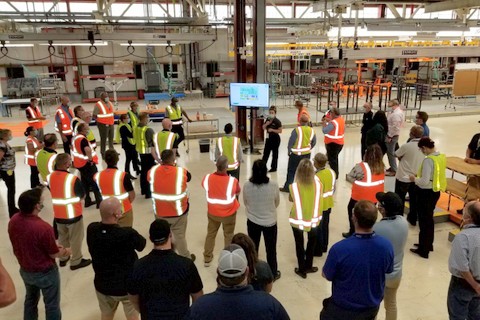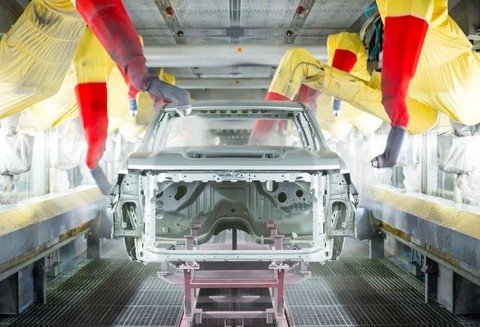5 Steps for Ensuring Worker Safety in EV Manufacturing
The Success of the EV Revolution Depends on This
As the world becomes more aware of environmental issues, governments are beginning to lay the foundations for electric vehicle infrastructure. The U.S., in particular, has set initiatives that will both promote and support significantly increased EV demand.

While this is good for business, it might be a double-edged sword for manufacturing. More demand means more jobs, but the question is whether or not the automotive industry can keep its workers safe. Automotive work is notorious for grievous workplace accidents.
Companies throughout the electric vehicle supply chain must take steps to improve worker safety if there is to be an increase in jobs in the EV manufacturing industry.
1. Improve Worker Safety Training
One of the biggest steps companies can take to improve safety in the workplace is to update worker safety training. While there are a few universal safety guidelines for automotive manufacturing, the needs of individual EV facilities are unique. Therefore, training and policies must be specific for each factory.

Employees from every part of the manufacturing process must undergo safety training and be familiar with the guidelines. This includes all workers’ roles, not just technicians and administrators.
2. Adhere to State and National Regulations
EV manufacturing must adhere to the same safety standards that all companies in the manufacturing sector do. These are a mix of local and state regulations that set worker safety standards. Failure to comply can result in legal action from a third party, such as a government agency.
Different processes in EV manufacturing can fall under various regulations. For example, battery manufacturers for EVs fall under OSHA rules specific to that sector. At the same time, the manufacture of car parts might be covered in another set of standards.
3. Update Emergency Response Procedures
In addition to training, manufacturers should use the most up-to-date emergency response guidelines versions. They should be unique to each facility and include emergency exits and outdoor meeting areas.
Various aspects of the manufacturing process warrant different responses. All employees must be familiar with the procedures, and the company should make this information freely available.

4. Use Automation to Avoid Workplace Accidents
Workplace accidents can cost companies almost $1 billion weekly in compensation payments and medical expenses. To avoid this, companies can adopt automation technologies such as robotics and AI to keep workers out of harm’s way.
Using automated robotics technology to perform repetitive tasks such as assembly can reduce the number of opportunities for accidents by cutting down the time workers need to operate heavy machinery. In addition, automated vehicles can lift and handle heavy objects while people supervise.
In addition, although EVs are proven to reduce the automotive industry’s carbon footprint, harmful emissions caused by their manufacture are a different story. New automated technologies can help reduce these emissions.
5. Implement Internet of Things Technology
The connectivity offered by Internet of Things (IoT) technology can help keep workers safe by giving administrators greater oversight over the manufacturing process.
Wearable technology such as watches and badges can help managers track workers’ whereabouts and conditions. IoT devices can make reporting accidents easier, allowing quicker response times if someone is injured.
Keeping Workers Safe Is Essential for Success
The demand for EVs is poised to rise, and manufacturers must take more extraordinary precautions to keep employees on all levels safe to ensure production continues smoothly. Safety measures can save the company millions in legal and medical fees and provide everyone with peace of mind.

1 thought on “5 Steps for Ensuring Worker Safety in EV Manufacturing”